Beijing’s most famous mooncakes are made by Daoxiangcun and its stores draw big crowds and long lines in the lead-up to Mid-Autumn Festival (tomorrow!). We counted 45 hungry people in the queue during our visit in the middle of a weekday, and most customers were filling multiple boxes with their selection of the capital’s best baked goods.
But if you saw our video on Instagram Reel (below), you’ll know we weren’t there on that day for mooncakes. We were there instead for the èrbā jiàng (二八酱 ,two-eight sauce) soft serve Daoxiangcun recently began offering at its flagship store on the Old Beijing Dinner Tour route.
Made with two parts peanut butter and eight parts sesame paste, erba jiang is the traditional basis for Beijing’s distinctive hot pot dipping sauce. To find out how it ended up in soft serve, we need to begin the final decades of the Qing Dynasty (1644-1911).
Established in 1895 in Qianmen, the area immediately south of Tian’anmen Square, Daoxiangcun began as a seller of baked goods that already had hundreds of years history, with some dating back to the Yuan (1279-1368) and Ming (1368-1644) dynasties. Forced to close in 1926 due to instability that escalated to become the Chinese Civil War, the business remained closed for more than five decades.
In 1984, a fifth-generation descendant of Daoxiangcun’s founders began efforts to resurrect the brand, rounding up surviving bakers and other employees in an attempt to rediscover the knowledge, recipes, and techniques used to produce the brand’s more than 600 varieties of pastries, cakes, and mooncakes.
At the time, the neighborhood of Beixinqiao (the meeting point for the Old Beijing Dinner Tour) was having trouble finding employment for its young people, so invested RMB 80,000 into re-establishing the brand and offered a former sewing factory as a space for Daoxiangcun to begin baking. In the years that followed, unemployed young people from the neighborhood became skilled bakers and pastry chefs, the business flourished, and Daoxiangcun became recognized as one of Beijing’s Time-Honored Brands.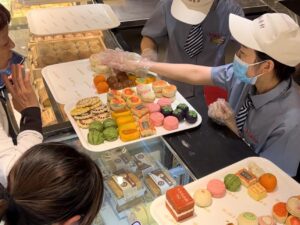
In recent years, Daoxiangcun and Time-Honored Brands like it across the nation have seen a decline in popularity. While newer brands and those from overseas see constant innovation as the key to thriving in China’s rapidly modernizing market, Time-Honored Brands have seen adhering to tradition as their key selling points and continued trading on the products and brand recognition they have developed over centuries. As a result, apart from during the pre-Mid-Autumn mooncake rush, Daoxiangcun has become a brand popular almost entirely with the older generations.
Now a new trend among China’s younger generations has emerged. Known as guócháo (国潮, national wave), the trend is seeing young people displaying cultural confidence and becoming increasingly proud of and interested in traditional Chinese culture. Modern brands of food, clothing, and consumer products have been capitalizing on this trend by incorporating elements of traditional culture into their products. At the same time, Time-Honored Brands and other brands producing traditional products have been busy innovating, hoping modern twists on centuries-old culture will help capture a share of the guochao market.
Now that it is cool to eat like your grandparents, food brands are leading the pack in creating time-traveling fusion products, to varying degrees of success. The chairman of top-end baijiu (Chinese distilled spirits) brand Kweichow Moutai said last year that capturing the youth market with its products is the “greatest challenge, or crisis, the company currently faces.” This month, the company has teamed up with Luckin Coffee to release a baijiu-flavored latte across Luckin’s 10,000 stores across the country, and teamed up with U.S. chocolate brand DOVE to release baijiu-flavored chocolate. We feel no need to recommend either.
This is where the soft serve comes in. Daoxiangcun has been running a far more successful campaign to captivate young consumers with new-old products. In addition to maintaining its existing stores catering to its established consumer group, it has also opened a number of new “Number 0” stores, including one just 100m south of its Number 1 store south of Beixinqiao. These stores now offers viral products like the erba jiang soft serve.
Erba jiang is a great choice for inclusion in guochao products as it ticks all the boxes for elevation from ingredient to icon, as it:
- is a traditional element of Beijing culture,
- is widely recognized due to its use for generations in the homes throughout the city
- can elicit feelings of nostalgia due to its continued use during the childhoods of Gen Z,
- and – maybe most importantly – it tastes wonderful.
After a long career as the star of its own show in hot pot dipping sauce, erba jiang is definitely a contender for a best supporting ingredient award for the rich peanut and toasted sesame flavors it brings to soft serve. We particularly enjoy the sprinkling of crushed peanut and sesame seeds on top that brings a slight crunch to each mouthful.
To try it yourself, visit Daoxiangcun’s Number 0 store (稻香村零号店). If there is a queue, only join it if you’d also like to buy pastries and cakes. Otherwise, head straight to the counter and ask for èrbā jiàng bīngqílín (二八酱冰淇淋).
152 Dongsi Bei Dajie 东四北大街152号, 140m north of Zhangzizhonglu Subway Station Exit B on Line 5. Open 8:30a.m. to 8:00p.m. Phone 64062806

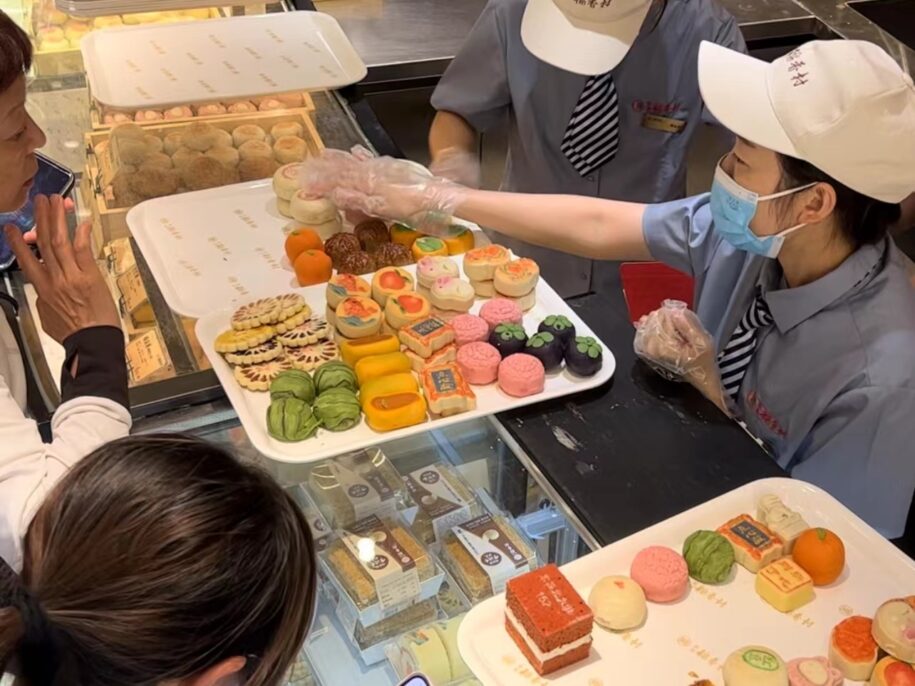
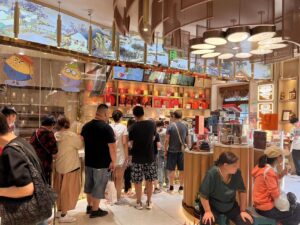
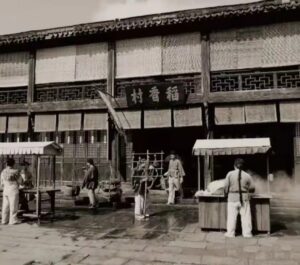
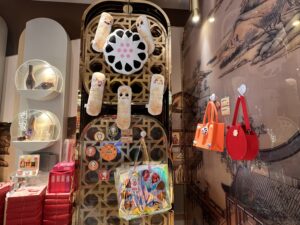
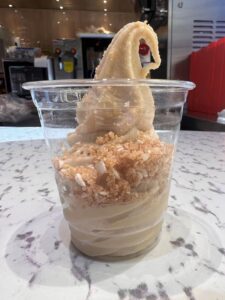
Leave a Reply